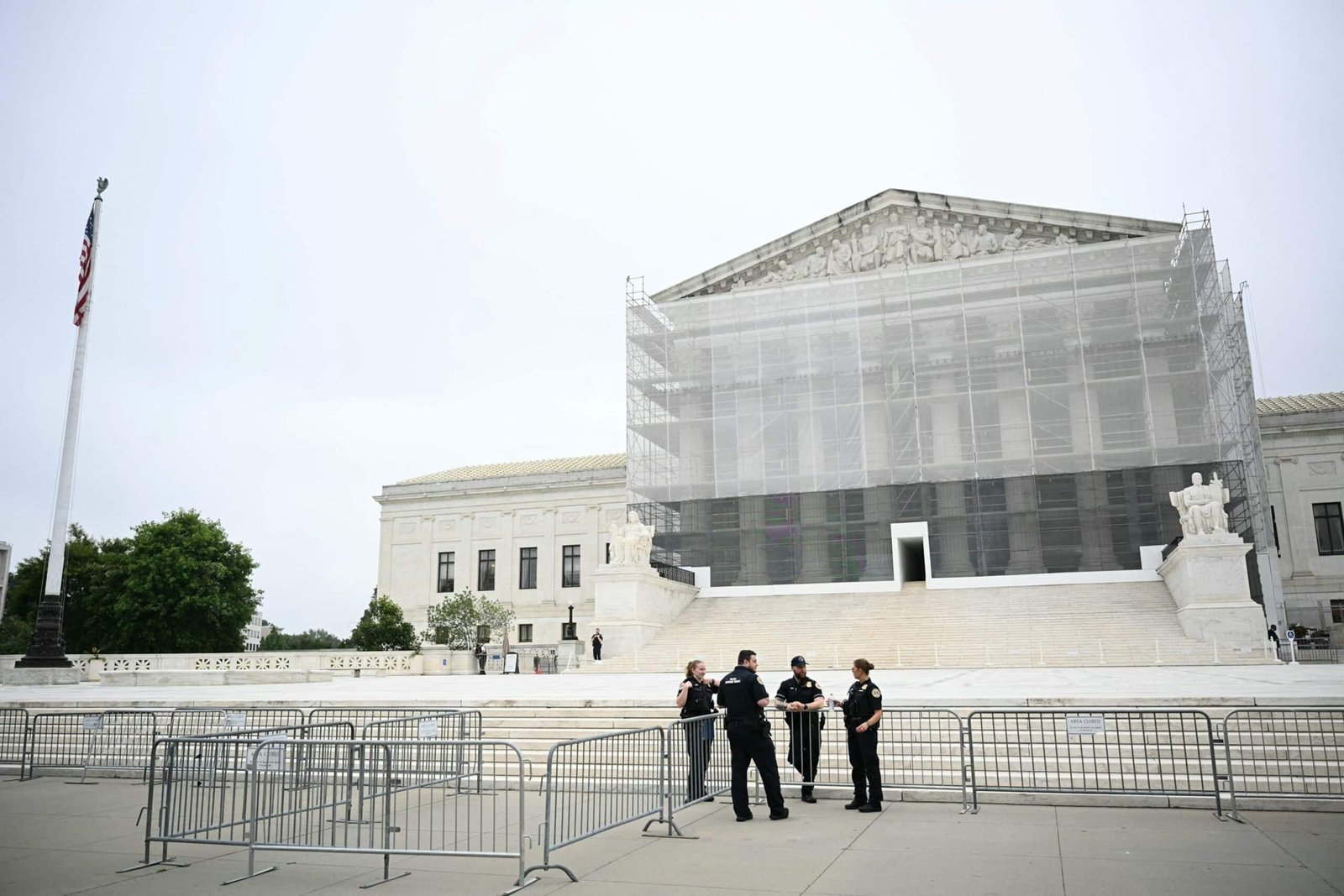What’s next for citizenship of the rights to the Supreme Court.

The Supreme Court on Friday dropped a highly anticipated decision involving President Donald’s executive order Donald Trump day 1 to effectively end the citizenship of the rights of the rights.
But there are still many questions about how such orders will be done at a practical level.
And while the majority of the conservative courts are limited to the national order issued by the federal judge against the order, the court did not decide whether the order itself was constitutional.
However, the decision can cause the re -establishment of radical legal rights to citizenship that has long been guaranteed by the Amendment to 14 – at least in the short term.
Effective immediately, administration can begin to plan how it will end citizenship rights.

The Supreme Court police officer stands outside the Supreme Court in Washington, 27 June 2025.
Mandel and/AFP
Trump’s own order has a grace period of 30 days before it began to take effect, meaning that there is currently no change for citizenship rights and children born everywhere in the country are still US citizens.
The rules need to be prepared and specifically from such orders still need to be handled: For example, will every pregnant woman in America now need to go to the hospital with a passport or birth certificate?
The White House on Friday does not have a clear answer when pressed specifically.
The Federal District Court in Maryland, Massachusetts and New Hampshire will soon have to review the national orders issued there given the court’s decision and adjust or narrow them to apply only to the Plaintiff who brought these cases.
The plaintiff is 22 states, immigrant advocacy groups and a number of non -pregnant women.
The challenger to Trump’s executive order will continue to submit a demand for orders for services. There is no court that directly considers the constitutionality of executive orders, although three lower courts say they will clearly violate the 14th amendment and there are three precedents of the Supreme Court that have been clearly upholding citizenship of birth rights.
But for the remaining 28 countries that have not been suing, Trump’s efforts to end the citizenship rights can be valid for 30 days.
Challengers can and will also fight broad implementation in other ways when moving forward.
On Friday, one group filed a class action lawsuit that sought broad protection from all pregnant women who were not citizens, even those who were not plaintiffs.
In the agreed opinion, Judge Brett Kavanugh indicates that the plaintiff may also be able to challenge the administrative citizenship regulations, which have been issued, based on administrative procedures.
Attorney General Pam Bondi, however, struggled on Friday to discuss how exactly the administration plans to apply Trump’s orders.
Asked who would be assigned to examine citizenship (for example, whether it would be a nurse or doctor like a baby born) Bondi only answered: “These are all delayed litigation.”
Another reporter asked Bondi, “If you have a baby who is not documented, will the baby be a priority for law enforcement?”
“Violence violence in our country is a priority,” Bondi was deflected.
What’s next for national orders?
More broadly, the government is likely to try to restore national orders that prevent Trump’s policy in other cases.
The hearing and decision will be played in the coming weeks.
“This order has prevented our policies from tariffs to military readiness to immigration to foreign affairs, fraud, harassment and many other problems,” Bondi said, Friday. “The judges have tried to win the power of the executive branch and they cannot do that. Not anymore.”
President Trump said the same when he celebrated the decision.
“So, thanks to this decision, we can now immediately submit to continue with many of these policies and those who are mistakenly ordered nationally, including citizenship rights, ending the reserve city funding, suspending refugee residential, unnecessary excavation freezing, stopping federal taxpayers from payments for payments for transgender and better transgender,” federal tax payers from payments for transgender and transgender transgender. PRSIENS PRESIENDS PRESIDER, “Federal Taxpayers of Payment for Transgender and Transgender Surger.






